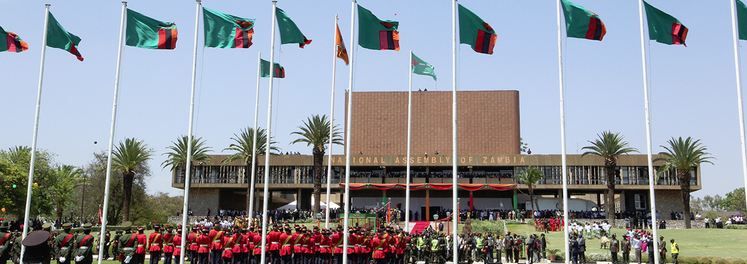The international community has stood in solidarity with human rights activists in Zambia who are opposed to the enactment of a new mental health legislation for failure to comply with human rights standards. The Zambian government seems to have left out crucial submissions made by stakeholders during the consultation process and produced a draft which has not been well received even by representatives of persons with mental illnesses and disabilities.
In a solidarity statement signed by 10 international organisations and experts including Amnesty International, Southern Africa Federation of the Disabled (SAFOD), Disability Rights International, International Commission of Jurists (ICJ), The Southern Africa Litigation Centre (SALC) and Validity Foundation – Mental Disability Advocacy Centre, serious concerns have arisen on the text of the Bill.
In recent years, the Special Rapporteur on the Rights of Persons with Disabilities has criticized Zambia’s out-dated laws applicable to persons with mental disabilities as violating rights guaranteed under the UN Convention on the Rights of Persons with Disabilities (CRPD) which Zambia ratified in 2010. The Zambian High Court has similarly called for “thorough review” of the law which it found to be offensive to constitutionally guaranteed rights.
It is in this context and following years of tireless activism that Zambian mental health care users, organisations of persons with disabilities (OPDs) and civil society have welcomed the Zambian government’s intentions to reform the law by tabling the Mental Health Bill No 1 of 2019.
Disability Rights Watch a leading advocacy and disability rights think tank was called in first by the Committee on Health and Social Services that was mandated to work on the Bill by the speaker of Parliament. In their expert submissions the organisation expressed concern that The Bill had been substantially changed departing away from almost all the submissions made by different stakeholders who were directly involved in the consultation process of the Bill. Many stakeholders, including persons with disabilities in general, and those with mental disabilities in particular, with other civil society organisations and medical practitioners made submissions, in good faith, which took into consideration provisions of international human rights frameworks and the Constitution of Zambia.
DRW further recommended that the 2019 Bill should not proceed in its current form until the concerns of persons with mental disabilities and wider civil society are fully addressed in the frame of comprehensive, inclusive and transparent process of engagement like this one.
Whereas aspects of the Bill are welcome, notably adoption of a definition for discrimination conforming to that given under the Persons with Disabilities Act 2012, the Bill has fundamental weaknesses which render it incompatible with human rights guarantees provided in international human rights frameworks and the Constitution of Zambia.
DRW Director Wamundila Waliuya said the Bill wrongly refers, in the Preamble, to the Principles for the Protection of Persons with Mental Illness and the Improvement of Mental Care General Assembly Resolution 46/119 of 17th December 1991 which has been superseded by the UN Convention on the Rights of Persons with Disabilities.
He also said the Bill was replete with discriminatory and derogatory language which attacked the dignity of persons with mental disabilities as citizens of Zambia, including the term “mental disorder”. The use of derogatory language, including this term, was found to be “highly offensive, derogatory and discriminatory”, having “no place in a modern society” by the High Court of Zambia and was banned by the court in Mwewa, Kasote and Katontoka v. the Attorney General and Others [2017/HP/2014].
DRW also contended that In its present form, the Bill would legalise abusive practices which breach Constitutional protection and the human rights of persons with mental disabilities including legislating to enable involuntary detention, forced treatment, seclusion, restraint and electro-convulsive therapy (ECT) (which if not modernized cases severe pain).
Zambian mental health users have also expressed serious concern with the content of the Bill. The Bill contains discriminatory provisions based on an outdated medical model of mental disability and violates human rights guaranteed by the CRPD and the Protocol to the African Charter on Human and Peoples’ Rights on the Rights of Persons with Disabilities in Africa (Africa Disability Protocol). Rather than being drafted in line with human rights, the Bill is modelled on archaic approaches to mental health that have since been rejected by human rights bodies and the World Health Organization.
Zambian human rights defenders, activists, OPDs and civil society have expressed concern that the Bill does not reflect the comprehensive submissions of stakeholders who were involved in consultative processes in the Bill’s development in the years leading up to its tabling. The National Assembly’s current consultative process on the Bill has been criticized for the extremely short notice that stakeholders have been given to engage since the Bill has been made public. Calls have therefore been made for comprehensive amendment of the Bill to align it with human rights standards.
“As regional and international human rights organisations, OPDs, disability activists, academics and lawyers, we stand in solidarity with the demands of Zambian activists, OPDs and civil society in calling for the Bill to be amended in full compliance with the Zambian Constitution, the CRPD, and the Africa Disability Protocol. We endorse the calls for meaningful consultation and incorporation of the submissions of mental health users, OPDs and disability activists.
“We commend the extraordinary political will for reform displayed by the Zambian government but join Zambian activists in stressing the vital necessity for comprehensive amendment of the Bill. Zambia has the opportunity to be a regional leader in reforming outdated laws applicable to persons with mental disabilities. We urge the legislature to enable a process of meaningful engagement that allows for the serious deficits of the Bill to be addressed to ensure its compliance with the Constitution, the CRPD, and the Africa Disability Protocol.” The statement from international human rights actors concluded.



